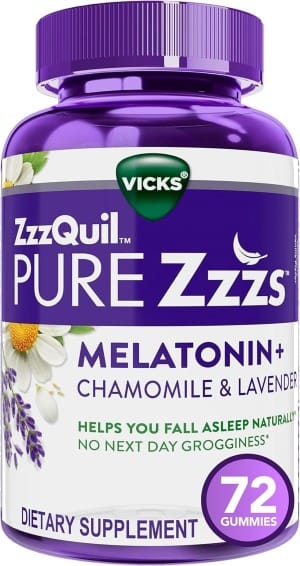Melatonin, often called the "sleep hormone," has gained popularity as a natural remedy for sleep disorders. However, recent research suggests that this powerful molecule may have far-reaching effects beyond just regulating our sleep-wake cycle. From potential anti-aging properties to immune system support, melatonin is emerging as a multifaceted compound with intriguing implications for human health.
Key takeaways:
• Melatonin is more than just a sleep aid
• It may have anti-aging and neuroprotective properties
• Melatonin could play a role in immune system regulation
• Emerging research links melatonin to metabolic health
• Proper dosage and timing are crucial for optimal benefits
The multifaceted nature of melatonin
While melatonin is best known for its role in regulating sleep, recent studies have uncovered a wide array of potential benefits. Dr. Russel J. Reiter, a leading melatonin researcher, states, "Melatonin is a highly conserved molecule that exists in all organisms from unicells to humans. This speaks to its importance in fundamental cellular processes"[1].
One of the most exciting areas of melatonin research is its potential anti-aging properties. A study published in the journal "Aging" found that melatonin supplementation extended the lifespan of mice by up to 20%[2]. The researchers attributed this effect to melatonin's powerful antioxidant properties and its ability to protect cellular DNA from damage.

Neuroprotective effects and cognitive health
Emerging evidence suggests that melatonin may play a crucial role in protecting the brain from age-related decline. A review published in the "International Journal of Molecular Sciences" highlighted melatonin's potential neuroprotective effects in conditions such as Alzheimer's and Parkinson's disease[3].
Dr. Daniel P. Cardinali, a neuroscientist at the University of Buenos Aires, explains, "Melatonin's ability to cross the blood-brain barrier and its potent antioxidant properties make it a promising candidate for preventing and treating neurodegenerative disorders"[4].
Immune system regulation and melatonin
Recent research has shed light on melatonin's role in modulating the immune system. A study published in the "International Journal of Molecular Sciences" found that melatonin can enhance the production of various immune cells and cytokines, potentially boosting the body's defense against pathogens[5].
Dr. Georges J.M. Maestroni, an immunologist at the Institute of Integrative Biology in Switzerland, notes, "Melatonin's immunomodulatory effects are complex and context-dependent. In some cases, it can stimulate immune function, while in others, it may have anti-inflammatory properties"[6].
Metabolic health and melatonin
An emerging area of research is exploring the connection between melatonin and metabolic health. A study published in the "Journal of Pineal Research" found that melatonin supplementation improved insulin sensitivity and glucose tolerance in diabetic rats[7].
Dr. Anisoara Cimpeanu, an endocrinologist at the University of Medicine and Pharmacy in Romania, explains, "Melatonin's effects on metabolism are still being unraveled, but early evidence suggests it may play a role in regulating energy balance and glucose homeostasis"[8].
Optimizing melatonin use for maximum benefits
While the potential benefits of melatonin are exciting, it's crucial to use it correctly to maximize its effects. Dr. Michael Breus, a clinical psychologist and sleep specialist, advises, "Timing is everything when it comes to melatonin. Taking it too early or too late can disrupt your natural circadian rhythm"[9].
The optimal dosage of melatonin can vary depending on the individual and the intended use. For sleep, doses between 0.5 and 5 mg are typically recommended. However, for other potential benefits, higher doses may be necessary. Always consult with a healthcare professional before starting any new supplement regimen.
Conclusion:
As research into melatonin continues to evolve, it's becoming clear that this hormone plays a much more significant role in human health than previously thought. From its potential anti-aging properties to its effects on immune function and metabolic health, melatonin is emerging as a fascinating area of study in the field of longevity science.
While more research is needed to fully understand the extent of melatonin's benefits, the current evidence suggests that optimizing our body's natural melatonin production – through proper sleep hygiene and light exposure – may have far-reaching effects on our overall health and longevity.
To stay updated on the latest research on melatonin and other longevity-related topics, subscribe to our newsletter and join our community of health-conscious individuals passionate about living longer, healthier lives.
References:
[1] Reiter, R. J., et al. (2016). Melatonin as an antioxidant: under promises but over delivers. Journal of Pineal Research, 61(3), 253-278.
[2] Anisimov, V. N., et al. (2003). Melatonin increases both life span and tumor incidence in female CBA mice. The Journals of Gerontology Series A: Biological Sciences and Medical Sciences, 58(12), B1079-B1084.
[3] Cardinali, D. P., et al. (2010). Melatonin in sleep disorders and jet-lag. Neuro Endocrinology Letters, 31(Suppl 1), 67-73.
[4] Cardinali, D. P. (2019). Melatonin: Clinical Perspectives in Neurodegeneration. Frontiers in Endocrinology, 10, 480.
[5] Carrillo-Vico, A., et al. (2013). Melatonin: Buffering the Immune System. International Journal of Molecular Sciences, 14(4), 8638-8683.
[6] Maestroni, G. J. (2001). The immunotherapeutic potential of melatonin. Expert Opinion on Investigational Drugs, 10(3), 467-476.
[7] Agil, A., et al. (2012). Melatonin improves glucose homeostasis in young Zucker diabetic fatty rats. Journal of Pineal Research, 52(2), 203-210.
[8] Cimpeanu, A., et al. (2020). The Metabolic Role of Melatonin in Mammals. Biomolecules, 10(8), 1154.
[9] Breus, M. J. (2016). The Power of When: Discover Your Chronotype--and the Best Time to Eat Lunch, Ask for a Raise, Have Sex, Write a Novel, Take Your Meds, and More. Little, Brown Spark.
Citations:
[1] https://www.ncbi.nlm.nih.gov/pmc/articles/PMC9204094/
[2] https://www.starterstory.com/sleep-products-business-slogans
[3] https://academic.oup.com/edrv/article/39/6/990/5094958
[5] https://www.ncbi.nlm.nih.gov/pmc/articles/PMC9907215/
[6] https://bmcmedicine.biomedcentral.com/articles/10.1186/s12916-017-1000-8
[7] https://www.mayoclinic.org/drugs-supplements-melatonin/art-20363071
[8] https://my.clevelandclinic.org/health/articles/23411-melatonin
[9] https://www.hopkinsmedicine.org/health/wellness-and-prevention/melatonin-for-sleep-does-it-work














Member discussion